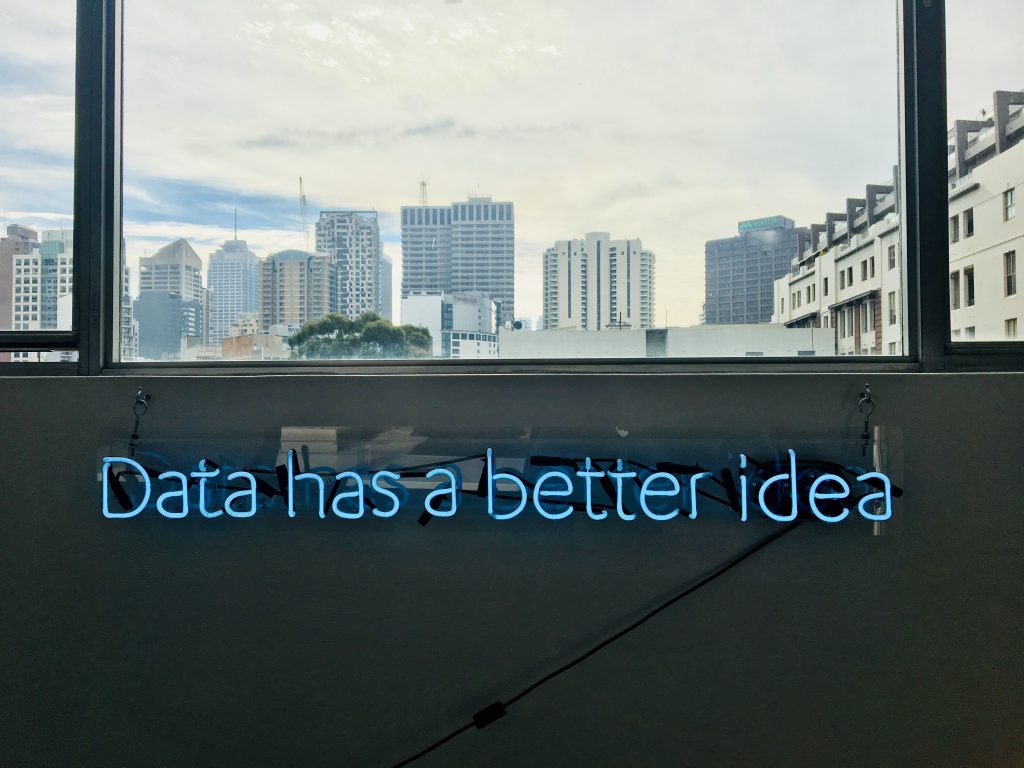Tech cooperation at a precarious junction
This report recap is part of the AI & China: Smart Partnerships for Global Challenges project, focused on data and AI. The Atlantic Council GeoTech Center produces events, pioneers efforts, and promotes educational activities on the Future of Work, Data, Trust, Space, and Health to inform leaders across sectors. We do this by:
- Identifying public and private sector choices affecting the use of new technologies and data that explicitly benefit people, prosperity, and peace.
- Recommending positive paths forward to help markets and societies adapt in light of technology- and data-induced changes.
- Determining priorities for future investment and cooperation between public and private sector entities seeking to develop new technologies and data initiatives specifically for global benefit.
@acgeotech: Championing positive paths forward that nations, economies, and societies can pursue to ensure new technologies and data empower people, prosperity, and peace.
Summary of the Paris Roundtable on AI — September 16-17, 2019
Artificial intelligence and other modern technologies are developing at an exponential pace, and the discussions about their use as well as their implications for society are shaped by uncertainty. Whether it is the future of work, the collection and application of data, or new means for surveillance and social manipulation — AI will most likely influence every aspect of modern life. Change that is coming, no matter whether people like it or not, and decision makers are under pressure to prepare for a new world in the digital age. In order to establish forums, enable discussions about opportunities and challenges of modern technologies, and evaluate their implications for international relations, the Atlantic Council’s Foresight, Strategy, and Risks Initiative was awarded a Rockefeller Foundation grant that helps lay the groundwork for a new GeoTech Center. The tasks at hand are the publication of reports and the organization of conferences around the world. At these gatherings, international participants evaluate how countries can successfully collaborate on artificial intelligence and other emerging technologies, while putting a special emphasis on China, the country’s use of AI as a development tool, and its role as a global citizen.
The first roundtable in the series was held in Paris on September 16-17, 2019. Together with the BOAO Forum for Asia, the Fondation pour la Prospective et Innovation (FPI) and with support from Lennar International, the Atlantic Council gathered high level delegations from the United States, China, and Europe for a wide-ranging discussion on emerging technologies. The two sessions about “AI and Future World: Perspectives from China, US, and Europe” and “AI: Proposals to Governments” were intended to provide the approximately 60 participants with an opportunity to exchange views, consult about disagreements, and map out paths towards cooperation. Admittedly, not an easy endeavor given the current state of international affairs, the ongoing US-China trade war, and a growing public backlash against modern technologies and globalization.

Despite all the diplomatic language, the forum in Paris made one thing very clear. The US administration has raised the specter of economic decoupling from the People’s Republic of China. While all the attending scientists, academics, and representatives from businesses and think-tanks stressed the importance and necessity of international cooperation on the subject matter, US officials opened the discussions with a clear message: As long as China remains undemocratic, uses AI to enhance surveillance, and expands its authoritarian methods with modern technologies, cooperation will not be pursued. A position that was strongly objected by the Chinese delegation. Their representatives pointed to America’s “imperfect record on human rights” as well as ongoing “illegal interferences” in other countries’ domestic affairs, including China. An initial dispute that exemplified current tensions, took aback European representatives, and worried non-government attendees from China, the United States, and Europe who all called for more cooperation among countries on such an important issue as artificial intelligence.
AI and Future World: Perspectives from China, US, and Europe
Most participants expressed serious concerns about the potentially devastating economic and societal consequences of emerging technologies. They underlined the need for regulatory frameworks, expressing hope that they can reduce negative impacts. According to statements made in Paris, it is the speed at which AI and other new technologies are developing that is particularly worrisome. Things that were deemed impossible ten years ago, are now cutting edge, considered normal, or already implemented. Of course, technologies per se are far from evil, and their development will provide mankind with tremendous opportunities. Automation, for instance, is going to increase productivity, medical advancements powered by AI will enable longevity and better quality of life, and modern software can improve the efficiency and transparency of governments. But similar to previous industrial revolutions, with emerging opportunities come significant challenges, too.
Smart robots might make the means of production and services more efficient, but they will also disrupt many jobs, which could lead to stagnating wages, broad unemployment, and a lack of economic opportunity. Social developments that potentially threaten people’s existence, increase polarization, and make ongoing debates about the welfare state even more relevant. Modern medicine might enable longer lives, but inevitably brings changes to the existing education and pension systems. How many careers will people have in a lifetime that could go well beyond a hundred years, and who is paying for their retirement, if there is one at all? And while good governments might use new technologies to increase their transparency and public accessibility, face recognition, as well as other unimagined tools of surveillance, challenge the notion of privacy and change the power dynamic between citizens and states. Representatives from the US Department of Defense, for instance, explained the Pentagon’s transparency initiative while recognizing that the development of artificial intelligence will not only change the nature of war, but also the way defense organizations operate in the future. Especially participants from the business sector furthermore noted that AI progress is going to put enormous pressure on the meaning of data, as a private, global, or societal good. Subsequent questions arise: What aspects of society do we spare from technological advancements and how much integration do we allow machines into our daily lives?
The respective answers also depend on the definition of artificial intelligence itself. Some scientists argue it is logical thinking, while others understand it as programmed learning. But imitating the human mind in developing artificial reason might not end up being the real purpose of artificial intelligence. According to attendees in Paris, it might rather be the ability to solve complex problems at a much faster speed than humans ever could. Such an evolution of technological advances, however, will be based on a trial-and-error technique and requires loads of accessible data. At all times, it is ultimately very experimental, which increases the necessity for regulation and the definition of rules for the game. Most participants, therefore, highlighted the need to debate who would have access to these data, what would they be used for, and how would they be gathered.
Without a doubt a difficult task, due to the existing differences in regulatory approaches, many of which became obvious during the roundtable discussion. While in the EU, data and consumer protection seems to be key, the two major players — China and the United States — have yet to develop sophisticated legislation that regulates the use of data and AI development. While the US government seems to be deadlocked over how to move forward on regulation, Chinese officials reaffirmed that legislators in Beijing are well aware of the challenge and are currently developing regulatory frameworks. With some even questioning whether there should be any legislation at all, given potential negative economic and technological effects, most participants in Paris agreed that legislative collaboration on the international level would prove to be very beneficial for societies. Eventually, such cooperation could address the existing concerns by the United States, China, and others of falling behind in the global AI race, in that it would develop binding rules for all players. Such an approach was advocated particularly by the Europeans, while Chinese, and most certainly US officials, saw ensuring a level playing field as more important for tempering the ongoing competition.

AI: Proposals to Governments
Chinese and European governments as well as non-government representatives further argued that political differences should not hinder necessary cooperation on emerging technologies. The French representatives in particular, many of whom were involved in international climate negotiations, emphasized the stateless character of the challenges at hand — a loaded analogy given the successful negotiations of the Paris Climate Agreement in 2015 as well as the Trump administration’s decision to leave it unilaterally. Like the United Nations Framework Convention on Climate Change (UNFCCC) process, French participants urged consultations at the expert level which could establish a universally agreed baseline on the harms versus the benefits coming from the AI revolution. Such an acknowledged picture of the total effects from modern technologies could then inform policymakers as to the needed regulatory steps to minimize negative externalities, while maximizing potential benefits. It was suggested that different bodies, such as the G20, the IMF, the World Bank, or regional organizations could also use the “objective” facts to take action on the various aspects of the emergence of modern technologies, implementing on a coordinated basis the needed social, economic, data, and ethical protections.
Triggering broader agreement among participants, a European government representative stressed the fact that necessary international cooperation must start on the domestic level, building trust and confidence there between government, companies, and consumers. New solutions like machine taxation, regulatory efforts to ease social transitions, or software capable of identifying deep fakes should be shared across countries as best practices — just as mistakes and disappointments should be shared as warnings. In the best case scenario, such an approach is twofold. On the one hand, it can establish guidelines to define the rules of the game and prevent escalating conflicts, and on the other hand, give countries and companies enough freedom to be innovative and profit from well-deserved successes.
While such expert conventions could address special features of AI and modern technologies, governments must be aware of other emerging debates, too. Participating academics pointed out that automation and the rise of AI will potentially be the first industrial revolution that is identified as one before it actually occurs, which highlights the importance of adequate political reactions. The new digital era might as well be defined by the control of means of consumption, instead of means of production. There was general agreement that humans have always tried to be more efficient — an endeavor that sometimes causes self-made social problems. Never did negative externalities come from the emerging technologies themselves. That is especially why advancements should be pursued with as much caution as excitement. Given the tremendous opportunities, think tank participants, for example, pointed to the potential for data oligarchies to evolve into data democracies, even if it required significant efforts to achieve such a transformation.
Conventions for data protection and/or AI seem to be good ideas, but the necessity to be aware of their unintended consequences and use mistakes to refine them is essential. Representatives from European governments as well as some academics floated the idea of a universal basic income, proposed significant changes to existing education systems, suggested ways to attract smart talent in order to remain competitive, and called for transparency among the different national bodies undertaking reforms. And while there was certainly no lack of good ideas, the Paris roundtable pointed to today’s main problem: the lack of political will for cooperation.
Main Takeaway
The necessity and importance of international cooperation on artificial intelligence and emerging technologies was stressed multiple times, from scientists, business representatives, think tankers, and even Chinese and European government officials. But as long as political concerns remain a precondition for subsequent negotiations, especially on the American side, the global AI race risks ending in a Hobbesian-like chaos, without regulations, cooperation or even consultations. With rising US public disappointment over the results of globalization for the middle class, a zero-sum mentality has established itself to the point that the United States government accepts a lose-lose situation so long as it means that China suffers more. Playing fields for this great power competition have long been on trade, but recent shifts focus on AI. Given the extent of Sino-US economic interdependence, it is clear that a new Cold War on tech would not benefit either side. Yet, from the meeting in Paris, such a future appears to be the current geopolitical trajectory. A precarious situation, where Europeans and non-state actors must not only worry that they are left behind, but are also being forced to choose sides, all the while scared of being crushed in a fight that only knows losers.
Interested in learning more about the event in Paris? Ed Luce wrote a Financial Times column about the conference in France: “Trump is serious about the US divorce from China”
The meeting in Paris was part of the Atlantic Council’s ongoing endeavor to establish forums, enable discussions about opportunities and challenges of modern technologies, and evaluate their implications for society as well as international relations — efforts that are championed by the newly established GeoTech Center. Prior to its formation and to help lay the groundwork for the launch of the Center in March 2020, the Atlantic Council’s Foresight, Strategy, and Risks Initiative was awarded a Rockefeller Foundation grant to evaluate China’s role as a global citizen and the country’s use of AI as a development tool. The work that the grant commissioned the Atlantic Council to do focused on data and AI efforts by China around the world, included the publication of reports, and the organization of conferences in Europe, China, Africa, and India. At these gatherings, international participants evaluate how AI and the collection of data will influence their societies, and how countries can successfully collaborate on emerging technologies, while putting a special emphasis on the People’s Republic in an ever-changing world. Meetings in Africa and India are scheduled to take place later this year and summaries of the roundtables in Brussels, Berlin, Beijing, and Shanghai have been published.

The GeoTech Center champions positive paths forward that societies can pursue to ensure new technologies and data empower people, prosperity, and peace.

